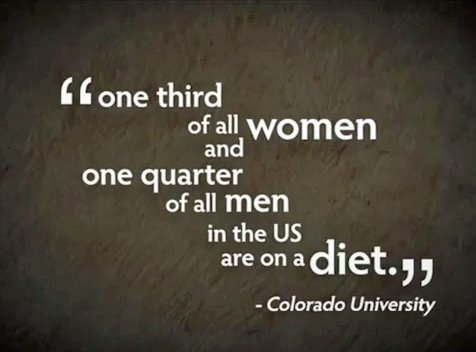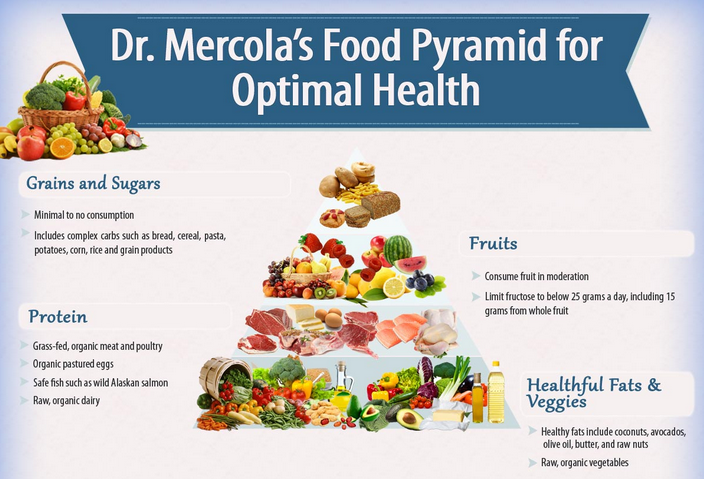Vitality 4 Life uses cookies to provide and improve our services, if you continue browsing, we consider that you accept its use. For more information, please see our privacy page.

Hungry for Change: Exposing the Secrets of Weight Loss & Diet Industry
From the creators of best-selling documentary Food Matters, comes another thought-provoking and hard hitting documentary designed to expose the secrets and deceptive strategies behind the weight loss and diet industry. With over $60 billion spent in the U.S on weight loss and diet products per year, it is shocking that a staggering 68% of the population is overweight or obese. But how can this be right?
We all want more energy, younger looking skin and an ideal body, but in a world where "diet", "sugar-free" and "fat-free" labeling are rife and unsubstantiated, it can be very confusing as a consumer to know what to eat! Hungry for Change guides you through both the marketing tricks and the mental triggers to allow you to be aware of such things and make conscious decisions.
Hungry for Change explores the reasons why our population are overweight and sick with a strong focus on chemical food ingredients, preservatives, sweeteners, additives etc. Extremely common ingredients such as vegetable oils, high fructose corn syrup, MSG and Aspartame are the stars of this topic. Hungry for Change provides scientifically backed information that explains why such chemicals are bad for us, how they trigger addiction and how they disturb our normal hormone function.
Hungry for Change uses a panel of experienced "teachers" from Dr. Mercola, David Wolfe, Jon Gabriel, Mike Adams and Jason Vale.
The Flawed "Dieting" Paradigm

The central message the film conveys is the need to change the word 'diet' from being a term used to describe a temporary shift in food consumption/intake to being a word used to describe the food which you consume everyday for the rest of your life. Basically, it insists that the notion of dieting is flawed because diets are only temporary. Michelle May M.D states that "diets temporarily treat symptoms, not causes; diets temporarily change behaviors, not the source of those behaviors".
The film focuses on the thinking that diets do not work because they focus on what people shouldn't eat, and do not address the reason why they eat that food in the first place. "Dieters" often don't look to address the emotional, social or mental triggers that have caused over-eating for the consumer. Hungry for Change looks specifically at addiction and the role that food, drink and diet industries play in addiction.
Junk Food Companies: Engineering Addiction?
Not only does Hungry for Change look in detail at the physical effects of the food we are eating but also in depth information at the reasons why we keep coming back for more.
Processed or "Junk Food" is recognized as foods whose components are modified, for example fibre or water is removed. This then alters the way the ody digests and absorbs the food. Highly processed/concentrated foods can artificially stimulate dopamine, the neurotransmitter responsible for pleasure. Thus, you are consuming food with less nutrition but it is giving you a pleasurable feeling. The kind of pleasurable feeling that you will want over and over again.
Michael Moss, author of "Salt Sugar Fat: How the Food Giants Hooked Us", explains a process perfected by junk food makers known as "subverting sensory-specific satiety", he explains that there is a "tendency for big, distinct flavors to overwhelm the brain, which responds by depressing your desire to have more." Companies such as Doritos or Coca-Cola owe their success to complex formulas that pique the taste buds enough to be alluring but don't have a distinct, overriding single flavor that tells the brain to stop eating.
Overfed and Starving to Death
Little do most people know, regardless of the amount of food we consume, unless the body is consuming vital nutrients it remains "hungry", and the result is a body literally starving of nutrients. We are "overfed but starving to death".
Dr. Mark Hyman gives an insight into his research and experience with his US patients - "Upwards of 30 percent of American diets fall short of such common plant-derived nutrients as magnesium, Vitamin C, Vitamin E, and Vitamin A. More than 80 percent of Americans are running low on Vitamin D. And nine out of 10 people are deficient in omega-3 fats, which are critical for staving off inflammation and controlling blood sugar levels."
Food is less nutritious than it used to be. Our species evolved consuming foods which were drastically higher in nutrients, vitamins and enzymes than the processed foods found in supermarkets and that we consume on a day-to-day basis.
Industrial farming is also depleting the nutrients in farmlands. As a result the same fruits and vegetables are drastically less nutritious than their counterparts 50 years ago. A study by the Journal of the American College of Nutrition in 2004, tested the nutritional content of 43 fruits and vegetables and found levels of calcium were down 16 percent, iron 15 percent, and Vitamin C 20 percent. Not a single nutrient had increased in the past 50 years.
The hardest part is that less nutrients means lowered immunity and increased vulnerability to chronic disease and obesity. When your body doesn't get the right nutrition, it just keeps asking for more food. And so the binge eating cycle begins.
Are you Hungry for Change?
1. Begin to address underlying issues with food
The first step is to start to recognize any underlying emotional, social or physiological factors which may be causing over-eating or a reliance on food as an comfort. Seek professional help if necessary. It is important to address these early on so that you are one step ahead of the addiction.
Changing the concept of “I want that (food, drink, etc.) and can’t have it” but to re-frame in your mind, take control if it and think “I could have that (food, drink, etc.) but I don’t want it.” Merely changing your mental attitude away from a scarcity mentality, which will make you crave it more, will help change the overall outlook on food.
2. Turn the Food Pyramid on it's head
Following the original 1992 version of the Food Pyramid is a "recipe for obesity" according to Dr Mercola. With grains as the largest bottom block, it encourages you to eat 6-11 servings of pasta, bread, rice and cereal each day.The excessive amount of carbohydrates and absence of healthy fats such as avocado, coconut oil, olive oil and nuts.
Dr Mercola has created his own Food Pyramid which has healthful fats and vegetables as the largest group, followed by Protein, then fruits and a minimal consumption of grains and sugars.

3. Start Juicing Daily
As Jason Vale states "juicing is the 15 minute nutrient express to health!". It is by far one of the best things you can incorporate into your everyday diet and the effect it can have on your health is astonishing.
- Juicing allows you to consume a large serving of vegetables and fruit at any one given time. Consuming kilos of vegetables is much easier when juicing rather than eating.
- Juice goes straight to your bloodstream which is then transferred to the parts of your body where they are needed without any delay from further digestion. Your body can then absorb the nutrients quickly and easily.
- Add a wider variety of fruits and vegetables into your diet with juicing. One of the fantastic things about juicing is that you can experiment with different flavour combinations and use vegetables that you wouldn't normally eat.
- Juicing is a very effective way to cleanse the body. This is especially the case with green juices, which contain high levels of chlorophyll which attaches to the toxins and heavy metals and helps to remove them from the body.
Watch the Hungry for Change Trailer
[product id="638"]
[product id="651"]











